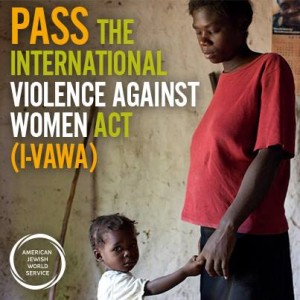Tag : Dasi Fruchter
September 26, 2018 by admin
Orthodox Woman Rabbi Starts a Synagogue
Rabbanit Hadas “Dasi” Fruchter, who has been an assistant clergy member on the staff of Beth Sholom Congregation in Potomac, announced she would move to Philadelphia to found her own Orthodox synagogue there. She is opening the new congregation with a grant from a new nonprofit established to seed female-friendly Orthodox synagogues, a sign of the rapidly growing institutional support for women in Orthodox leadership.
“I am blessed and so excited to be able to do what I was made to do. It used to be not an option for me,” Fruchter said this week. Once she dreamed as a teenager of marrying a rabbi, because she didn’t think she could ever be one. Now, in her office, she has two certificates of rabbinic ordination, hanging across from each other: her own, and her grandfather’s, from when he became an Orthodox rabbi in 1940. “I think about this amazing thing, that I am able to do what he did.”
…Female Orthodox leadership is so new that nearly every rabba or maharat [the terms for a woman rabbi in Modern Orthodoxy] can claim to be a first in one way or another. But Fruchter isn’t looking just to break barriers; she’s looking to become the norm. “The second, I think, sometimes is cooler than the first,” she said. “It shows that there’s a trend starting.” JULIE ZAUZMER, in The Washington Post, July 28, 2018.
- No Comments
March 14, 2014 by Dasi Fruchter
Purim: An Order Out of Chaos
 Out of all the Jewish holidays, I’ve always felt the most ambivalent about Purim. I consider myself to be more of a Sukkot or Passover aficionado, serving grand meals under the stars or crafting experiential moments of peoplehood around an elaborately decorated Seder table. I felt something lacking in the apparent disorderly nature and wackiness of Purim. Yet, I can actually weave the narrative of my life through the events that took place on the 14th of the Hebrew month of Adar. What I thought was disorder was actually a path– the path in which I continue to journey as a leader, a learner, and a student at Yeshivat Maharat.
Out of all the Jewish holidays, I’ve always felt the most ambivalent about Purim. I consider myself to be more of a Sukkot or Passover aficionado, serving grand meals under the stars or crafting experiential moments of peoplehood around an elaborately decorated Seder table. I felt something lacking in the apparent disorderly nature and wackiness of Purim. Yet, I can actually weave the narrative of my life through the events that took place on the 14th of the Hebrew month of Adar. What I thought was disorder was actually a path– the path in which I continue to journey as a leader, a learner, and a student at Yeshivat Maharat.
The young Purim. One of my earliest memories happened on Purim. It was in the synagogue social hall as we prepared to read the megillah. I remember the air smelled vaguely like packaged hamantaschen and I was holding a homemade noisemaker in my hand to drown out the name of Haman, who threatened to “to destroy, kill and annihilate all the Jews, young and old, infants and women, in a single day.” I was proudly dressed as Queen Esther, and my five- year-old self bumped into one of my tiny friends. She was also dressed as Queen Esther, and she was wearing a pair of those tiny high heels that you could get at a toy store, a costume princess dress with a tiara, and plastic clip-on earrings that dangled to her neck. She sat on the edge of a chair, her glittery feet dangling off the edge. I looked at her with such admiration, coveting all of her accessories. In my mind, in all of her royalty, she could have been coated in diamonds.
Purim, ten years old. My mother was involved in youth work, and every year she fashioned a fabulous Purim party for teens and their families. That year, however, one of the teens came to the party very, very, drunk–and we needed to stay late to make sure he got home. As an anxious child, I remember pacing back and forth and breathing shallowly as the police came to examine him and look in his car. Why was he lying on the floor and yelling? I felt out of control and frightened. My mother made order out of the chaos–I watched as my mother skillfully dealt with the situation and waited for the teen’s parents to arrive before we left for home. I watched from a distance, admiring, fearing.
- 1 Comment
February 27, 2014 by Dasi Fruchter
At Compassion’s Edge
 The snow that doesn’t quite seem to stop falling this winter was also falling consistently throughout the winter of my tenth grade year of high school. As a teen, as gunmen shot in the suburbs of DC near my home and wars raged around the world, I was very bothered by the “state of things”, and I just wanted to do something about it. So, the night before Chanukah, I decided to prepare gifts for my friends at the day school I attended. I printed little cards that read:
The snow that doesn’t quite seem to stop falling this winter was also falling consistently throughout the winter of my tenth grade year of high school. As a teen, as gunmen shot in the suburbs of DC near my home and wars raged around the world, I was very bothered by the “state of things”, and I just wanted to do something about it. So, the night before Chanukah, I decided to prepare gifts for my friends at the day school I attended. I printed little cards that read:
Happy Chanukah! A Donation has been made to American Jewish World Service in your honor.
I taped a candy to each one (poorly, I recall. many of them fell off) and handed them out in school to my friends, feeling like I had done my part to fix the world that seemed so broken to me, and that didn’t seem to respect the values I grew up holding: that each person was made in the image of God, and deserves to live a life free of violence and oppression.
Early on in my college experience, though doing Jewish social change work is what continued to make my heart beat faster, I decided to begin to largely shut out issues of global justice from my consciousness. I had become simply overwhelmed by the volume of things that needed fixing around the world, and I was reminded of my high school classmates, as they had rattled off skeptical reactions to my idealistic donation-making approach that Chanukah. I would never get anything done, they had said.
I struggled with this overwhelming feeling, because I so deeply cared about justice for everyone. But eventually, I decided that, while I wouldn’t be totally silent on global issues, I would stop seeking to be on committees that worked to solve issues thousands of miles away. There were too many stories close to me that I wanted to be a part of transforming.
Furthermore, I wasn’t able to compartmentalize all of the oppression and suffering I saw in the world, but I knew deeply and sincerely that I wanted to be a part of the team that was making the world a better place. So, in my first efforts, I was working on shifting injustices within a twenty-mile radius. I knew I could be strategic and effective on a local level, and that others felt the same way about their potential impact in jetsetting and changing the world on a much larger scale. We would each have our spheres and we would support one another in forging social change.
This year, this calculus shifted unexpectedly for me. I became a part of the American Jewish World Service inaugural Global Justice Fellowship cohort, and we were headed to the Thai/Burma border in early January. I haven’t traveled much; it’s always made me a little tense. There is something about how airplanes are precariously floating in the air, how once you get where you’re going, the food hits your tongue a little differently, and the smells and sounds recall memories that aren’t quite your own. It all feels a little uneasy and unsafe.
- 2 Comments
 Please wait...
Please wait...